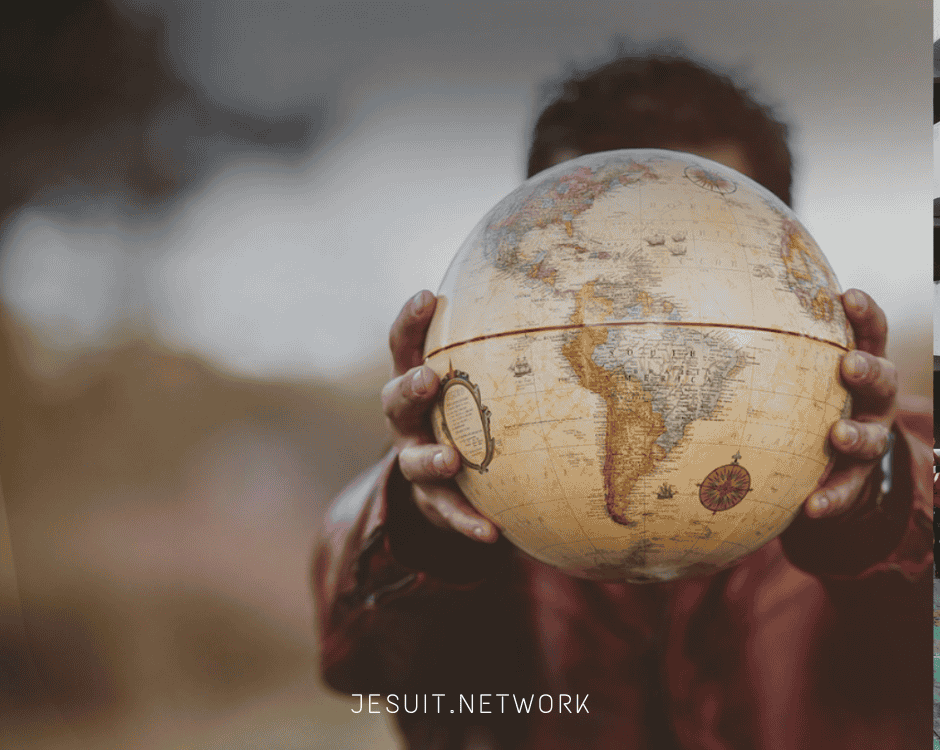This website uses cookies so that we can provide you with the best user experience possible. Cookie information is stored in your browser and performs functions such as recognising you when you return to our website and helping our team to understand which sections of the website you find most interesting and useful.
Ecojesuit commitment to build back a new normal
After many rich dialogues and sharing of insights over the past three months, we are very grateful to publish the Ecojesuit commitment to build back a new normal. The coordinators of the different Conferences have been working with this over the last few weeks so we are developing a very strong collaboration on the lead actions.
Human vulnerability and environmental degradation are laid bare once more as the pandemic grows and country documentation reveals the spread of the virus. All of us are at risk, but, as with other disasters, it is always the poor and those on the margins that suffer most from society’s continuing neglect, leaving them with limited options and weakened voices. The continued abuse of and encroachment on an already degrading environment increases the potential for pandemics despite advances in science and technology increasingly driven by a technocratic model of development (LS 194).
Getting back to normal is not acceptable– what is needed is to build back a new normal with renewed urgency. A new normal requires addressing the structural inequalities and injustices globally, and reducing the vulnerability of the poor and marginalized. A new normal means building a just economy, generational equity and culture of solidarity focusing on the common good that is inclusive and low-carbon. An economy of exclusion exacerbates the effects of both climate change and the pandemic. A new normal roots us in the humble and grateful consciousness of our interdependence, moving us in a process of personal and collective conversion with compassion and hope, integrating our actions as a body across different levels, realities and dimensions.
This is the context in which a deeper dialogue with the Ecojesuit teams of the six Conferences emerged, and an understanding that Conferences need to strengthen their solidarity with local communities. The need to build back a new normal was the shared conclusion. This calls the Conferences to greater solidarity with local communities, deeper listening, greater engagement. It means sharing their stories so that they are able to participate in the global call for justice in response to the broader call for careful management of the oikos. We are in need of a new model for human development and new relationships with creation and one another as we come to realize our interdependence and interconnectedness.
We all share a common home and care can only be effective where there is solidarity in meeting basic needs and urgent action for the oikos. Ecojesuit seeks to strengthen collaboration across networks as we all form a vision for a just world in which all life is valued.
Local and regional stories of change from communities of practices inspire and strengthen solidarity, taking away the fears, the isolation, and the feeling of being small and alone amidst a global problem. With solidarity as the basis, Ecojesuit is taking a “learning through networking” approach where we collaborate to deepen learning, humbly acknowledging that we do not hold the answers but we have the desire to contribute to a basis for social action. The integrity of that response requires internal conversion which is at the heart of these changes and the humble transparency in Jesuit community and institutional life that Ecojesuit also seeks to share.
Six lead actions are identified to contribute to the process of building back a new normal and where the Conferences can actively engage.
- Connect agriculture and entrepreneurship
Access to food is a primary concern clearly echoed throughout the Conferences. This action involves tapping into agriculture and entrepreneurship activities of practitioners, organizers, other networks, and alumni associations. Related to this is the concern for generating local employment and broader questions of rural development, returning migrants, producer market inequalities, and land use change. The emerging effort now is for Ecojesuit to develop a global platform for sharing local stories and strategies in sustainable and community agriculture through animated online exchanges. - Address social-economic-environmental integrity in the face of deepened poverty– business as usual–environmental degradation
The impacts of the COVID-19 crisis are likened to natural disasters given the need for preparedness and adaptation, while environmental crises like droughts and locust infestations also affect the same vulnerable people. There are no textbook answers for how to build back better, but the biggest hopes lie in the actions taken at the local level in response to experiences there and effective measures taken by local governments and organizations. Engaging with the State, government, and local decision-makers is also necessary to deepen our response. Ecojesuit will promote a series of dialogues, online events, and media communications that highlight and interconnect these different realities as knowledge is developed to contribute to building the new normal. - Advocate for climate action, human rights and the contribution of Indigenous Peoples The youth-led climate action movement in recent years, built on landmark achievements like the Paris Agreement, indicated the growing global awareness that climate change impacts are not just environmental, but highlight the human right to a stable climate. From the extraction of fossil fuels to the aftermath of climate-related disasters, communities and the environment experience profoundly both the drivers and the impacts of climate change. Indigenous peoples, who are guardians of the forest, are among the most threatened as they seek to protect their lands, culture and livelihoods. Many countries need the technical and financial assistance not to be caught in the cheap dirty energy and industrial cycle as their economy seeks to grow, but be given the preferential option to shift to clean energy. A broader understanding of these interconnections can contribute significantly to a just response to the climate crisis and climate action that integrates human rights as a core concern. Ecojesuit seeks to contribute to this understanding and encourage action through online events and networking.
- Track and explain economic institutions emerging at the global level International economic institutions (i.e. IMF, World Bank, etc.) and the UN have a major influence in the direction and priorities of investments and broader financial systems. Some shifts in their policies are leading to greater inclusivity, e.g. by addressing unemployment and aligning with green ventures like alternative energy. We seek to communicate and explain these global economic shifts in partnership with experts through publications and other media. Globally, Ecojesuit continues to follow and engage with international processes like COP26 and the World Economic Forum which have a large influence on the economic paradigm and environmental concerns on a broad scale.
- Strengthening the Laudato Si’ Universities Action Platform, other Action Platforms of Laudato Si’ Year, and Querida Amazonia
The Laudato Si’ Universities and six other Action Platforms are emerging and are an opportunity to highlight the role of our educational institutions in social and environmental action, and community based research. Initial discussions between the Dicastery on Promoting Integral Human Development, the IAJU and certain universities have already started so that these universities can be involved in the design and development process. Ecojesuit also continues to be supportive of divestment efforts by Jesuit institutions. Querida Amazonia is another area for further action, as its call for integral ecology and synodality influences and informs Ecojesuit’s work and approach. Ecojesuit continues to facilitate and participate in discussions with universities and the IAJU, and those seeking to engage with Laudato Si’ Action Platforms and discussions on territorial biomes. - Promoting ecospirituality and the need for its awareness in basic education Ecological awareness and ecospirituality go hand-in-hand in developing a deeper sense of purpose and meaning of integral ecology among the youth. Schools are places we can help plant seeds of interconnectedness, community, and care so that the schools can lead and pursue the collaborative actions that are needed with other Secretariats and Networks. Ecojesuit seeks to promote ecospirituality efforts in schools and youth activities to help ignite ecological conversion.
Through these actions, Ecojesuit seeks to contribute to forming a renewed attitude as we build back a new normal where ecological and social justice is better integrated in our values and lifestyles. This focuses Ecojesuit’s efforts and affirms our commitment to the Universal Apostolic Preferences. Ecojesuit will facilitate and enable discussions that include voices from local communities, business leaders, faith leaders, policy makers, and economic experts to contribute to a broader perspective for a sustainable and just society.
Access to the original document: Ecojesuit Commitment Final (English) | Compromiso Ecojesuit Final (Español) | L’engagement de l’écojésuite Final (Francaise)





